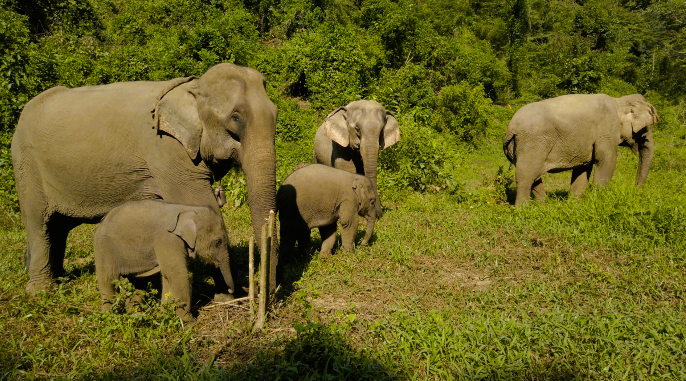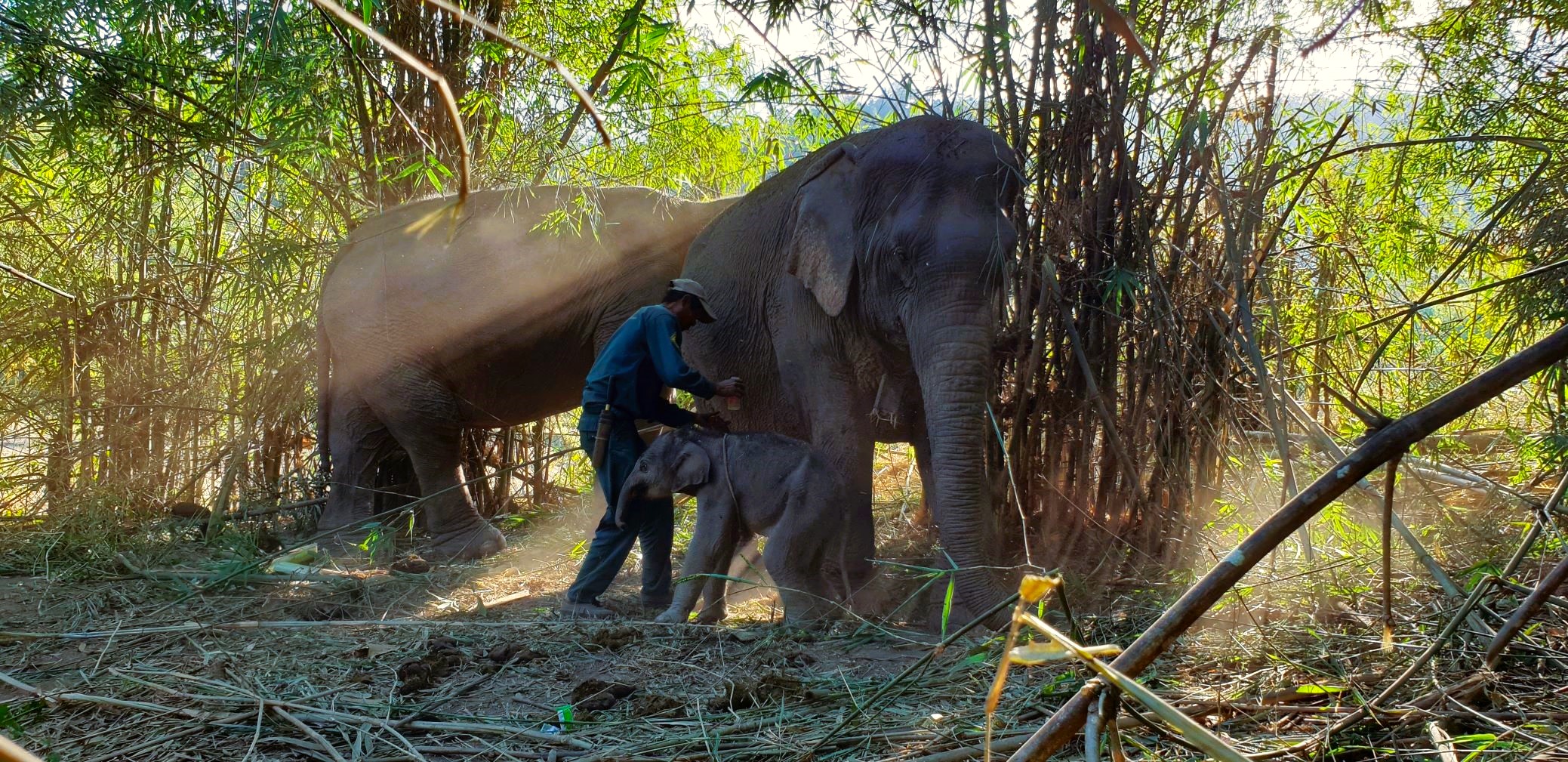Life is so precarious for elephants in Laos that baby elephants are not named until they turn two years of age, when their survival is more certain. Sadly, many baby elephants die before their second birthday, so the custom is to wait until they’ve survived before naming them. For the first two years of their life, baby elephants are all named ‘Noy’, including these two precious youngsters under the care of our partner Elephant Conservation Center (ECC).


Above front: Mae Khoun Noy and her 5-month old calf. Chubby baby in the middle, Mae Kham Pheng with her ears out in the background and her auntie, Mae Thong Bai on the right.
As our key partner in Laos, ECC cares for thirty-three elephants who have been rescued from captivity such as zoos, the logging industry, and from the ‘entertainment’ industry where they’re forced to provide rides to tourists. The aim is to not only save each individual elephant, but also to rewild ex-captive elephants to secure the long-term survival of the entire species. You can help them have a bright future.
These two babies named Noy represent the future of their species, and ECC staff are hopeful they will one day live free in wild herds in the Nam Pouy National Protected Area. One of these youngsters was born in December 2020 and one was born in October 2021. The baby born in December 2020 will soon have a naming ceremony, where the staff will choose the best name for her based on her personality. We’ll share photos and videos of this beautiful moment as soon as we can.


Above: In this photo from Christmas Day 2020, Noy is still learning to stand, helped by her mahout, her mother Mae Kham Pheng, and her auntie Mae Thong Bai.
In the meantime, the staff at ECC have started to introduce the two babies to each other, along with their mothers (Mae Khoun Noy and Mae Kham Pheng) and an auntie (Mae Thong Bai). The introduction process is called ‘socialisation’, and the team hopes that these five elephants will soon start to form a new herd that can be returned to the wild together. In the wild, female elephants usually band together to create herds that raise the babies together. For elephants, it takes a village to raise every young one. You can help this new herd survive into the future.
The main goals of socialisation are to allow the young elephants to engage in play behaviours, which are important for their social, physical and cognitive development. The socialisation also creates opportunities for ‘allomothering’ behaviours, which, put simply, means that calves are not only supervised by their mothers, but also by other elephants. The socialisation will also create strong social bonds between two calves, giving us a better chance of release.
We look forward to the day when we can release these youngsters and their mothers to the wild, where they will mix with their wild cousins and add to their numbers. You can help us protect these babies and their fledgling herd. Your gift today will make a real difference to their chances of survival and to the protection of their forest home.
